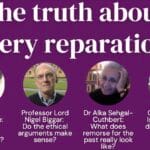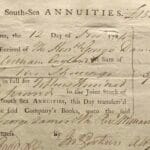Andrew Atherstone’s new publication, “Draw Near With Faith”: Invitations to Holy Communion, is out now with Grove Books. I asked him why we need the booklet, and what questions it is trying to answer.
IP: What gave you the original idea for this booklet?
AA: Almost all my writing begins as a personal question, on subjects I am trying to puzzle through and get clear in my own mind. This one is no different. It originates in a meeting of the Anglican Consultative Council in Ghana a couple of years ago [on which see Andrew’s exclusive report for Psephizo, “Grieving the Anglican Communion: English Primacy and the Anglican Consultative Council”]. The ACC brings together about 120 delegates from across the Anglican Communion, but our provinces are badly out of step with one another on some fundamental aspects of faith and morals. It seemed false to me to nonchalantly proclaim our unity through Holy Communion when in reality our unity is broken.
Therefore I chose to attend every Holy Communion service at ACC – daily for a week – but did not receive the sacrament. A similar approach was taken by the bishops of the Global South Fellowship of Anglican Churches (GSFA) at the last Lambeth Conference. In the Church of England meltdown created by the Prayers of Love and Faith, it’s an increasingly pressing question at home in England also. Fellow Anglicans now often find themselves, as a matter of conscience, unable to receive Holy Communion together.
But at Ghana I was challenged by some of the other delegates to give a theological defence for my refusal to receive. Is it ever justified? Trying to work through an authentic Anglican answer to that question has led me to write this booklet.
IP: What are some of the obvious problems with refusing to receive?
AA: Boycotting Communion altogether – as some conservative friends did in Ghana – is not the question. Eucharistic hospitality in an ecumenical setting is not the question either. There are lots of books on those topics. My specific question is whether it is ever right, as an Anglican, to attend Holy Communion with my fellow Anglicans and still not receive the sacrament. No one else seems to have written about this, so I am starting with a blank sheet of paper, in keeping with the old Grove Books motto, “Not the last word, but often the first.”
There are plenty of obvious problems with my approach, which as a student of evangelical history I felt acutely embarrassed about. First, I stand in the tradition of John Stott and the Anglican evangelicals of his generation who insisted on an “open table” to which all Christians are invited. The House of Bishops in those days maintained that only episcopally-confirmed communicants could receive in the Church of England. But Stott said No, it’s not the Church of England’s table, it’s the Lord’s Table. It is Jesus who invites us, not the bishops or the clergy. This has always been a key principle in Anglican evangelical eucharistic theology. But if, in Ghana, the Lord Jesus is inviting me, why am I refusing to receive from him?
Second, in the historic controversies between catholics and evangelicals in the Church of England, there was vigorous debate over what was called “non-communicating attendance”. The Victorians loved to write on the subject, as did the Reformers before them. Tractarians made a habit of attending Holy Communion without receiving, and claimed that it did them spiritual benefit. Sometimes only the clergyman would receive, while the whole congregation remained in their pews. But evangelicals replied, No, that’s foolish, if you attend Holy Communion and refuse to receive it doesn’t do you spiritual benefit. In fact, it does you spiritual harm. And yet here I was, at the ACC, attending but not receiving! Was I doing myself spiritual damage? Was I undermining hundreds of years of evangelical teaching? These are some of the serious questions that need to be faced.
IP: Away from Anglican politics, how is this relevant in the local parish?
AA: This subject is highly relevant for all of us in local churches. As soon as you ask the question, “How should I respond to the invitation to receive Holy Communion?”, it leads quickly to another question, “How should our local church invite people to receive Holy Communion? Who is invited and on what terms?”
In our village benefice in West Oxfordshire, it is typical for the clergy to offer a brief unscripted invitation to Holy Communion, immediately before the eucharistic prayer, to help the congregation understand how best to respond. Sometimes it picks up a particular theme from that Sunday’s sermon about grace, and repentance, and the welcome of Jesus, and our need to cry out to the Lord and depend on him in all things. Sometimes it is more generic, along the lines of: “Everyone here who is trusting in Jesus, and seeking to follow him, is invited to receive.”
On most Sundays we also use scripted words, and we have printed the following invitation in our parish Communion booklets. It appears in many different forms on the internet, and I don’t know who wrote this particular version, but it’s a good one:
Come to this table not because you are strong, but because you are weak.
Come not because any goodness of your own gives you a right to come, but because you need mercy and help.
Come because you love the Lord a little and would like to love him more.
Come not because you are worthy to approach him, but because he died for sinners.
Come because he loves you and gave his life for you.
It would be instructive to compare examples from parishes across the country. There is no uniform Anglican practice. My booklet aims to help us think more deeply about how we invite to Holy Communion, and the theological and pastoral implications.
IP: Why is the Book of Common Prayer your main source text?
AA: The New Testament gives us very little guidance on the rubrics surrounding Holy Communion. In fact, the Apostle Paul writes almost nothing on the subject, even when he’s addressing Bishop Timothy and Bishop Titus about clergy deployment! The New Testament gives us some broad gospel principles, which Christians down the centuries reflect upon and extrapolate in our liturgies.
In seeking authentically Anglican answers to our questions about Holy Communion invitations, it is good to dive into our official Anglican formularies. So my booklet is not an exposition of 1 Corinthians – we need a New Testament scholar to write that one for us! Instead, I look at the ways in which our Anglican liturgies expound 1 Corinthians and the Gospels. In particular, how did Archbishop Cranmer and the Anglican Reformers understand invitations to Holy Communion? They were first and foremost Bible lovers and Bible students, seeking to apply New Testament principles to an Anglican context.
At the heart of the Holy Communion liturgy in the Book of Common Prayer are three mini-sermons addressed to the congregation. They are often called “exhortations”, but I prefer to call them “invitations”, which is what they are. Each is a gospel summons. These three invitations are full of buried theological treasure and pastoral wisdom. Sadly, they have been sidelined and neglected for many years. There are no equivalents in Common Worship. Even those of us who still occasionally use the Book of Common Prayer – as we do in our villages for the early morning service – almost never use these invitations nowadays. The third one is the best known, beginning:
Dearly beloved in the Lord, ye that mind to come to the Holy Communion of the Body and Blood of our Saviour Christ, must consider how Saint Paul exhorteth …
But the other two are just as important.
I have been struck again by the way we are spiritually poorer as Anglicans if we cut ourselves adrift from this Anglican heritage. There is plenty of refreshing material here which applies to our current dilemmas. My booklet aims to dig up this buried treasure for Anglicans today, especially for anyone discovering these Prayer Book invitations for the first time.
IP: What are some of the major themes in the Prayer Book invitations?
AA: Each of the Prayer Book invitations is a form of theological meditation on the meaning of Holy Communion, full of pastoral challenge. They emphasize, for example, that Holy Communion is God’s Supper, a banquet over which God presides. Clergy are the messengers, carrying the Lord’s invitation far and wide, but they don’t invite anyone on their own authority. Rather they speak “in the Name of God” and “in Christ’s behalf”. The Prayer Book says we are “lovingly called and bidden by God himself”. Our participation is therefore, at one level, a measure of our response to the gospel.
Cranmer mines two of Jesus’s parables – the Wedding Banquet (Matthew 22) and the Great Dinner (Luke 14) – to draw out practical applications. Cranmer observes how Holy Communion is a Christian duty, and how it reveals our spiritual attitudes. He offers invigorating teaching both about the wideness of God’s invitation and the need to approach in the right way, with heartfelt repentance and lively faith in Jesus. I include a short chapter on the current “Open Communion” controversies, which asks whether we should invite everyone to participate in this meal, disciple of Jesus or not. Jesus’s meal ministry in the New Testament, usually with the marginalized and the excluded, was a dramatic enactment of the breaking in of the kingdom of God, a kingdom without borders. What are the implications for us today?
Another major theme which emerges from the Prayer Book invitations is the importance of participating fully, not merely watching others from the sidelines. There is a lovely phrase in the Second Book of Homilies (1563) which says that Holy Communion is instituted by Jesus as his “heavenly supper”, where all of us must be “guests and not gazers, eaters and not lookers”. But how do we apply that old Anglican principle in our modern context of the 2020s? Should we broadcast Holy Communion via YouTube for housebound members of our congregations to watch on their laptops? What about visitors who are exploring the Christian faith, not yet converted, who are left as bystanders at Holy Communion, merely watching the action?
IP: So where does all this leave your quest to discover the answers to your original challenge at the Anglican Consultative Council? Is attending Holy Communion without receiving ever defensible?
AA: Personally, I have found writing this booklet a stretching and clarifying exercise. I’ve been learning a lot! As someone who rejoices unashamedly in the Reformation heritage of the Church of England, I have discovered how Cranmer would take issue with some of my assumptions and behaviour. Cranmer is not a modern evangelical and doesn’t always back me up when I wish he would!
 Through spending time with Cranmer’s invitations, I have found myself more and more convinced that there are sound biblical and theological reasons for receiving Holy Communion even in a confused and fractured context like the Anglican Communion and the Church of England. Yes, it is possible to participate fully with a clear conscience.
Through spending time with Cranmer’s invitations, I have found myself more and more convinced that there are sound biblical and theological reasons for receiving Holy Communion even in a confused and fractured context like the Anglican Communion and the Church of England. Yes, it is possible to participate fully with a clear conscience.
On the other hand, I also argue that temporary withdrawal from Holy Communion can be a “prophetic sign” in certain circumstances, if we approach with an attitude of lament at our brokenness not of censorious judgmentalism at the sins and errors of other people. I wrote about this recently in the Church Times (18 July 2025), “Communion Boycotts: Prophetic or Churlish?”, laying out the case from both perspectives.
To dig in deeper, read the booklet, and see what you think. It is designed as a resource to help our Anglican conversations on this pressing topic, and it includes plenty of questions for reflection and discussion. It can be used by clergy and ordinands, to help us think about Holy Communion invitations in our local contexts, or as a springboard to chew over the topic with worship leaders and PCCs.
I love the front cover which Grove Books have designed for the booklet – an invitation, received in the post, with “RSVP”. That comes right to the heart of the matter: Jesus invites us, how will we respond?
“Draw Near With Faith”: Invitations to Holy Communion (Grove Books) is out now and can be ordered online post-free in the UK, or as a PDF ebooklet.
 Dr Andrew Atherstone is Professor of Modern Anglicanism at the University of Oxford, and Latimer research fellow at Wycliffe Hall, Oxford. He is a member of the Anglican Consultative Council and a consultant to the Inter-Anglican Standing Commission on Unity, Faith and Order (IASCUFO).
Dr Andrew Atherstone is Professor of Modern Anglicanism at the University of Oxford, and Latimer research fellow at Wycliffe Hall, Oxford. He is a member of the Anglican Consultative Council and a consultant to the Inter-Anglican Standing Commission on Unity, Faith and Order (IASCUFO).

 Buy me a Coffee
Buy me a Coffee




























“Come to this table, not because you must but because you may,
not because you are strong, but because you are weak.
Come, not because any goodness of your own gives you a right to come,
but because you need mercy and help.
Come, because you love the Lord a little and would like to love him more.
Come, because he loved you and gave himself for you.
Come and meet the risen Christ, for we are his Body.”
I know this from W.Barclay, “The Lord’s Supper”, which is from the 60s, and which also is, I think, where ‘Gathering for Worship/Patterns and Prayers’ takes it from. Sadly I don’t have my copies to hand to check, but I hope that might be helpful to pin it down.
Grove booklet ordered!
At my Confirmation (1960), we were presented with a slim pocket book ‘In His Presence’. The parish I attended borrowed from the rich, Birmingham, Anglo-Catholic tradition of those days of Bishop Michael Parker, of purposeful Saturday evening preparation to receive Communion the next day. The language of ‘In His Presence’ is a little dated, but the brief paragraphs on self-examination are a useful guide, especially for us as the penitent placing ourselves into Christ’s hands in preparation for Christ placing himself into our hands.
As we were preparing to move home in 1988 to a solid Evangelical parish and making our first visit, the churchwarden welcomed us at the door with these words, ‘This morning is a service of Holy Communion, and if you have prepared yourself, you would be most welcome to receive.’ A fabulous welcome, theologically sound … but perhaps the bible under my arm was a bit of a give-away!
I am not the incumbent of where I serve and we have an open table, which I wholeheartedly welcome as a principle. But, an aspect of Article 25 of the Articles of Religion is more than clear:
The Sacraments were not ordained of Christ to be gazed upon or to be carried about, but that we should duly use them. And in such only as worthily receive the same, have they a wholesome effect or operation: but they that receive them unworthily, purchase to themselves damnation, as Saint Paul saith.
For me that speaks clearly of the responsibility of us presiding at Holy Communion to ensure that the conduct of the service, especially Confession, and also the invitation to the Lord’s Table do not place any potential communicant in a mistaken understanding.
As Mat S says, the source is W Barclay ‘The Lord’s Supper’ SCM 1967 page 119. Willie Barclay always insisted he was a linguist rather than a theologian but he spent a good while planning and thinking through the book and the passage comes from his Order for a Communion Service which he used regularly in college prayers at Trinity College Glasgow. He never wrote its counterpart ‘Baptism’ saying that he didn’t feel he understood it well enough
In the Church of Scotland we have decayed further and faster than mainline Anglicanism and the question of boycotting the Lord’s Supper when it is being conducted by someone outrageously unsound in doctrine and/or lifestyle became a live issue some years ago. The Free Church writer David Robertson (The Wee Flea, hi David) chastises us for guilt by association, so thank you Ian and Andrew A for this contribution.
The steady decline in Biblical belief has been accompanied by our collapse in membership, a point made by Ian in reference to denominations approving a same sex lifestyle. Since I was ‘licensed to preach the Gospel’ in 1972 the membership has dropped 80% from its 1.1 million membership to about 50,000. You have been warned. But there are signs of hope in the number of genuinely evangelical younger ministers entering the C/S ministry and playing their part in its courts
Hi Peter,
I don’t think it’s fair to characterise David Robertson’s criticism as guilt by association.
As I’ve explained below, both the Court of Arches decision in Banister vs Thompson and the resulting Canon B16 were influenced by the ‘scandalum’ tradition which developed in the Middle Ages.
That tradition (which misinterprets Matt. 18:7 – 9) focuses on only resorting to withdrawal/exclusion when conduct creates scandal, while avoiding “conflict with customs widely accepted among the laity”.
This focus contrasts starkly with the doctrinal rationale of Church Fathers, like Athanasius wjo refused all communion with Arian bishops, like Gregory: ““If therefore Gregory shall write unto you, or any other in his behalf, receive not his letters, brethren, but tear them in pieces and put the bearers of them to shame, as the ministers of impiety and wickedness. And even if he presume to write to you after a friendly fashion, nevertheless receive them not. Those who bring his letters convey them only from fear of the Governor, and on account of his frequent acts of violence.” (https://www.academia.edu/17270290/Communion_and_Communication_among_the_Churches_in_the_Tradition_of_Alexandria)
David Robertson’s insistence on withdrawal/exclusion from Holy Communion just exposes that stark contrast with earlier church tradition.
A key reason for a person in a pew not to receive on a particular occasion is a broken relationship that hasn’t been fixed yet.
1. “So if you are about to offer your gift to God at the altar and there you remember that your brother has something against you, leave your gift there in front of the altar, go at once and make peace with your brother, and then come back and offer your gift to God.” (Matthew 5:23-24) (And some of us believe that receiving communion is indeed offering a gift to God, while the more evangelical, myself included, believe that it isn’t, but for both groups the principle remains.)
2. Judas, at the Last Supper, was plotting against Jesus, and yet received (John 13:27.) He shouldn’t have! – and he paid the price.
3. The “meaning of the Lord’s body” is that we are, or should be, united with one another. “For if you do not recognize the meaning of the Lord’s body when you eat the bread and drink from the cup, you bring judgment on yourself as you eat and drink.” (I Corinthians 11:29.) My own view is a compromise here – (a) to commend a temporary non-receiving while we try to sort out divisions. But (b) if the divisions look set to endure despite our efforts, then we resume receiving, providing that our own consciences are clear.
4. Matthew 18:15-17 is also relevant to the question of mending relationships. But when to implement Matthew 18:15-17, and when instead to implement Proverbs 19:11 (“When someone wrongs you, it is a great virtue to ignore it”) – needs the wisdom of Solomon.
Anyone confirmed who is called by God to receive communion should do so. There are enough divisions on communion already within Christianity. Roman Catholic priests for instance are forbidden by the Vatican from giving communion to non Roman Catholics and Roman Catholics cannot receive communion in Protestant churches and Orthodox churches also refuse communion to non Eastern Orthodox, without Anglicans not receiving communion from their fellow Anglicans as well
While I appreciate the Anglican focus, I still find Andrew Atherstone’s answer to the fourth question to be a bit puzzling.
Ian asked: “Why is the Book of Common Prayer your main source text?”
However, the reply considered only the NT as an alternative main source text.
In fact, the first-century Didache was probably the earliest extra-biblical authority that addressed Holy Communion.
Relevant quotations include:
“Allow no one to eat or drink of your Eucharist, unless they have been baptized in the name of the Lord. For concerning this, the Lord has said, ‘Do not give what is holy to dogs.’” (Referring to Matt. 7:6)
“If anyone is holy, let him come; if anyone is not, let him repent.”
“Let no one who has a quarrel with his fellow join your assembly until they are reconciled.”
In 2nd and 3rd C., Ignatius of Antioch, Cyprian and Tertullian extended these principles to a broader concern for unity and orthodoxy, emphasising unity with the teachings of the Churxh in submission to the appointed bishop.
It was the First Council of Nicaea that developed principles from those earlier writings and consolidated them into canon 5.
A key aspect of that canon was its emphasis on regular synods in which all church provinces could participate to ensure consistent episcopal discipline and eventual restoration.
My point is that, while the BCP is not at variance with the Church Fathers or canon 5, it’s worth revisiting earlier writings that informed the BCP to understand how such developments became legitimate.
Also, a further key development that influenced the Reformers was the principle of scandalum, whereby the Church of England sought to ensure that ecclesiastical discipline did not unintentionally provoke major disaffection towards and disillusionment with Christianity in the wider society.
As explained in the abstract of the following paper by Richard Helmholtz (https://www.researchgate.net/publication/272906503_X_Scandalum_in_the_Medieval_Canon_Law_and_in_the_English_Ecclesiastical_Courts):
“the concept [of scandalum] was used in three ways: first, as a spur for judicial action, including deviation from the normal ordo iuris to prosecute those whose conduct had created scandal; second, as a reason for avoiding conflict with customs widely accepted among the laity; and third, as a basis of a disciplinary jurisdiction involving men and women whose language had caused disharmony in local communities.”
Doubtless, that focus on scandal was central to the Court of Arches decision to Banister vs. Thompson:
“an open and notorious evil liver, so that the congregation by him is offended … the Curate having knowledge thereof shall warn him and advertise him … not to presume to come to the Lord’s Table until he have openly … repented”
That decision was enshrined in Canon B16: “if a minister be persuaded that anyone of his cure who presents himself to be a partaker of the Holy Communion ought not to be admitted thereunto by reason of malicious and open contention with his neighbours, or other grave and open sin without repentance, he shall give an account of the same to the bishop … and therein obey his order and direction …’.”
Since the Church Fathers and Council of Nicaea were focused on maintaining unity in orthodoxy, I’d wonder why decisions to withdraw from or refuse Holy Communion should continue to be so heavily influenced by the medieval concept of scandalum.
Like Peter White further up this column of responses, I’m a member of a Church of Scotland with an ‘open table’, but have been fairly regularly in a church in England [not Anglican or ‘of’ England] where the invitation to communion is given as being to ‘those who love the Lord’ and if visitors, are ‘in good standing’ with their home church. I’m not at all sure of the biblical basis for that second condition and it makes me squirm. There may be visitors who are not in good standing for very good reasons! The local church is a mixed bag, and they may be faithfully sticking there with biblical intent, but opposition from more liberal clergy or members, and therefore certainly not regarded as being in ‘good standing’. I love the sentences from William Barclay – beautiful.
I do not believe in excluding anyone from the Lord’s Table. I do, however uphold the scriptures of introspection (examination/confession of sin) through silent introspection. Retrospection is looking backward with additional examination upon our journey of progress with Christ through our maturation, and holiness in lifestyle. Then we can anticipate more from God as this worship has deepened through a thorough self/Spirit
Examination.
Grateful for this discussion of a very live topic these days. Venturing tentatively into a debate in which I feel out of my depth. So, while recognising that I haven’t read the book, only the interview, I have a question about this:
“Jesus’s meal ministry in the New Testament, usually with the marginalized and the excluded, was a dramatic enactment of the breaking in of the kingdom of God, a kingdom without borders. What are the implications for us today?”
Is anyone else uncomfortable with this, as I am? That is, with talking of the Eucharist as ‘Jesus’ meal ministry’, with no mention of the Passover, in which Jesus is our Passover Lamb?
The Last Supper is not simply ‘Jesus’ meal ministry’, it’s His symbolic fulfillment, completed the next day on the cross, of the whole biblical account of God’s plan of salvation for humankind, from the foundation of the world. Isn’t it?
Furthermore, the kingdom offer is open to all, but not taken up by all. Taking up the offer is not unconditional. It’s conditional upon repentance. Doesn’t talking in this way of ‘a kingdom without borders’ risk alignment with revisionist universalism? God’s kingdom is without limits, but it’s not without boundaries, is it?
Does 1 Cor 5 answer this (the author’s ‘meal ministry’) question? I think perhaps it does.
(I expect AA would agree with all this, but wonder whether this part of the interview would benefit from a bit of editing or a clarifying note, to avoid giving any wrong impression).
Thanks for commenting. Believe you me, Andrew is no univeralist! It is clear that this open meal is for all whom Jesus calls to repentance. The two cannot be separated.
Hi Ian,
The Didache established baptism as a condition of participation in Holy Communion.
In Christian tradition, there is also plenty of evidence that the sanction for impenitent departure from orthodoxy was exclusion from Holy Communion. Admittedly, excommunication was the ultimate episcopal sanction.
Furthermore, St. Athanasius’ Apologia de Fuga (https://www.newadvent.org/fathers/2814.htm), he explains how, in Alexandria, 4th-century Trinitarian Christians were persecuted for withdrawing from participating in Holy Communion with the heretical Arian bishop (Gregory of Cappadocia).
By no means was such withdrawal from communion with heretics an isolated practice.
So, even if AA is no universalist, his laissez-faire position on participation in Holy Communion is over reliant on the BCP and does not consider the longer trajectory of post-apostolic Church tradition.
I am always amazed that Jesus included Judas in the last supper even though he was about to have Jesus murdered.
I tend to take the line that as long as the Eucharist is faithfully and honestly celebrated, it’s okay for me to receive Communion, and to leave the worthiness or otherwise of the president (or even the denomination) to God (cf. Article 26). In the C of E, I have refused to receive when the authorised forms for celebrating the Eucharist are not used – when the liturgy is discarded altogether and the president simply reads 1 Corinthians 11.23-26 over the elements, for instance, and although I did receive the last time I was at a C of E service where a eucharistic prayer from the Roman Missal was used, I’ve come to realise that I was wrong to do so (the latter is usually a situation I’ve managed to avoid, on one occasion by asking more or less directly). Any comments?
It’s interesting that no-one so far has mentioned the discipline of fasting, especially as the general concept of fasting is so prevalent these days in various diet plans. I eat breakfast only if I am travelling and “don’t know where my next meal is coming from”. If that happened to be on a Sunday morning, I would not communicate.